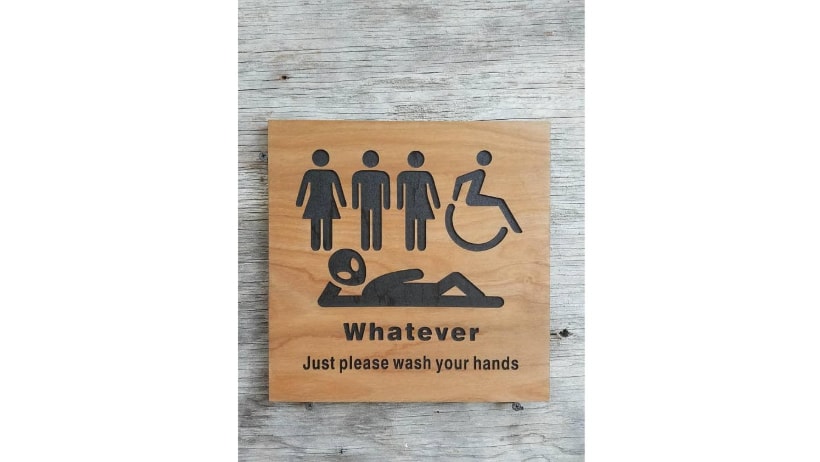Oasis Songs: Musings from Rav D
Tuesday, July 28, 2017 / 5 Av 5777
Summary: Rabbi Kosak speaks of his confusion and his personal feelings after the President’s recent decision to ban transgender people from serving in the US military. He examines how Chaza’l, our Sages of Old, confronted gender ambiguity. Finally, he shares the moral understanding he derives from our Sages clear-sighted approach to reality.
This week, our President decided that the military will no longer permit transgender people to serve. The suddenness of this policy shift, first announced on the President’s twitter feed, has created uncertainty and confusion for both top military brass as well as for a great many individuals who felt a compulsion to give back to our nation.

Let me first say that there is much here that confuses me. Above all other duties, the role as Commander in Chief is surely the most awesome responsibility granted to a sitting president. To have to make life and death decisions is perhaps the weightiest obligation we impose on our head of state. That is not a position most of us would ever relish; we are privileged to be free of such a devastating calculus.
But what are the limits of presidential power as commander in chief? How do our laws against discrimination and permitting equal access play out here? When and why is our military exempt from the laws of the land? How did all this come about? I am woefully ignorant.
It wasn’t really that long ago that units were segregated by skin pigmentation, or when gay and lesbians had to resort to subterfuge during President Clinton’s long-enduring policy of “don’t ask, don’t tell.” And too many of our military women continue to endure sexual abuse and suffer discrimination.
Because ours is a voluntary military, most of us are also freed from ever having to point a gun at another human being. Precisely because we don’t have a mandatory draft or national service (both of which I support) the vast majority of Americans too often relinquish our collective responsibility for how we do use military force. Or who may serve.
So I don’t have ready answers to these questions. Yet. What I do have is deep inner upset at this decision and how it must feel like a betrayal to so many of our faithful soldiers. And I have a clarity of moral conviction that if an American of sound mind and body wants to protect my family, they should they be given that opportunity. Regardless of their skin color, sexual orientation, religion or gender identity. Moreover, I owe a tremendous debt to them for their sacrifice and for freeing me from that duty and allowing me to keep my hands clean.
Still, the clarity of my moral conviction is mine.
We’ve all faced those moments where we struggle to transmit our certainties to others; oftentimes that may be a good thing. The presence of different perspectives, even in the moral sphere, can only force us to sharpen our own beliefs and arguments. Unfortunately, too often we retreat from that opportunity. We close our eyes to the reality of difference.
Which brings me to Chaza’l. During my trial weekend here more than two years ago, I taught a sample lesson called “Mastering Anxiety in the Presence of Difference.” We had an opportunity to see how our tradition provided us with resources and tools to conquer the uneasiness or fear we sometimes feel when we encounter those who look or act differently than we do. Simultaneously, we learned how two thousand years ago, our Sages wrote with no shame about people of mixed or uncertain gender.
Despite their awareness that people come bundled with more genders than just male or female, they still had a problem. The law, our beloved halachah, had discrete gender categories, a binary lens of male or female. And because Jewish law is highly dependent on precedent, they had to work within those confines.
Their approach to this legal dilemma is remarkable. Rather than excluding those who were neither male or female, or who were both male and female, they sought the deepest sort of inclusion. The questions they asked where, “what is the responsibility of someone who is neither male or female?” and “what are the duties of those who are both male and female?”
When we reach our maturity, isn’t that what most of us want? To be given responsibilities means you are taken seriously. Means you are valued, and are considered fully human. It means someone believes in you.
A society that finds ways to engage all of its citizens is unshakable.
Let’s keep building toward that America,
Rav D
Shabbat Table Talk
- When has someone else’s unusual behaviors made your feel uncomfortable? How do you tend to deal with your emotions when you find yourself in that sort of situation?
- Currently, our nation has been thinking about and dealing with transgender individuals. Whether we do that through debates about bathrooms or the military, as a nation we are confused. What are your thoughts about transgender people and transgender issues?
- Who do you think will be the next group of previously overlooked people to gain visibility in America?
If you’d like to continue this discussion, follow this link to CNS’s Facebook page to share your own perspectives on the topics raised in this week’s Oasis Songs. Comments will be moderated as necessary.



